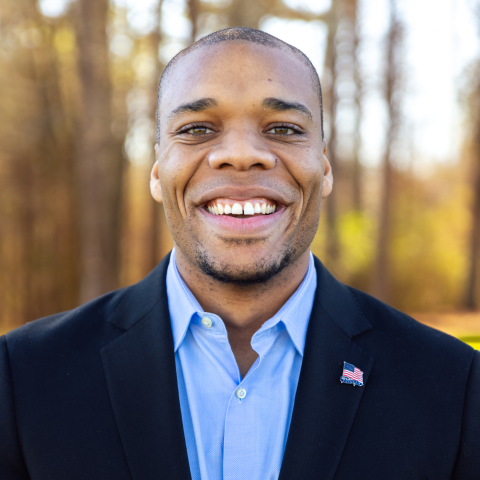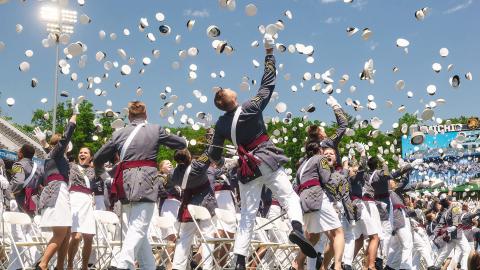Every year, I joined thousands of my West Point classmates as we marched in lockstep onto the football field — just hours before kickoff at the Army-Navy game. We typically stood there for a few moments, saluted, performed “the Rocket” and then marched off. The annual routine took hours of practice in the days leading up to the game. It became easy to wonder why it was important for us to do the same charade from year to year.
But like a lot of traditions at the Academy and in the Army, the purpose had little to do with us.
Many of us marched onto the field in hopes that we could inspire young boys and girls watching from home to someday serve their country too. We hoped that our military display would spark a sense of duty in the next generation of Americans. In short, the pomp and circumstance intended to sow seeds that will one day be reaped when the next generation answers the call to serve. And as we celebrate Veteran’s Day, I realize that our nation’s acknowledgment of veterans around the country partly serves a similar purpose.
Veterans day is more than just a day of free meals and perfunctory statements of gratitude. Today is an opportunity to transfer the inspiration to serve to our nation’s youth. By sharing stories and answering questions about experiences in uniform, veterans have an opportunity to pass on a legacy of service and motivate young people to fight for their country. And to be clear, we need this transfer now more than ever.
Our military faces its most serious recruitment and retention crisis since the end of the Vietnam War. If the Armed Forces fail to meet these standards, it could have bleak implications for our country’s overall standard of military readiness. Especially as threats from China and Russia continue to rise, military readiness remains a no-fail mission for the military.
But it’s not just our military that stands to gain; our nation’s youth could benefit from military service too.
Few careers provide a better antidote to the “me” generation than selflessly joining a branch of the Armed Forces. And instead of remaining crippled by student debt, many young people might find military service a fulfilling way to give back to their country while maintaining financial freedom.
Today, as Americans acknowledge those who have served and listen to their stories, we perform an important duty not just to the veterans themselves — but to those who will one day become veterans. The stories that we tell about our country matter. When veterans share firsthand accounts of why they decided to serve and what they learned from their experience, young people take note. Indeed, for all the pervasive narratives declaring that America is somehow fundamentally evil, personal testimonies from our nation’s veterans are far more powerful.
We must not take for granted that young Americans will learn what it means to serve before it’s too late. Nearly everyone in generations past at least knew a veteran. Indeed, in 1980, about 13 percent of Americans had served in the military. Forty years later, the share of veterans in the US population barely cracked 5 percent. The current trends illustrate the widening civil-military divide. That’s why all former servicemembers should consider sharing their stories this Veterans Day, and American citizens should be eager to listen.
Unlike many countries around the world, it’s a privilege that the American military maintains an all-volunteer force. After all, military service isn’t for everyone. Everyday citizens continue to make a difference in a multitude of ways that don’t require wearing a uniform.
But for many of us who have served, we didn’t randomly wake up one day with a sudden motivation to dedicate years of our lives to the military. The initial inspiration might have come from a special moment with a loved one who served generations prior, or an inspiring Veterans Day ceremony that captivated our young hearts.
Our desire to serve was, in some way, passed down from those who came before us. It’s on us to pay it forward.

















